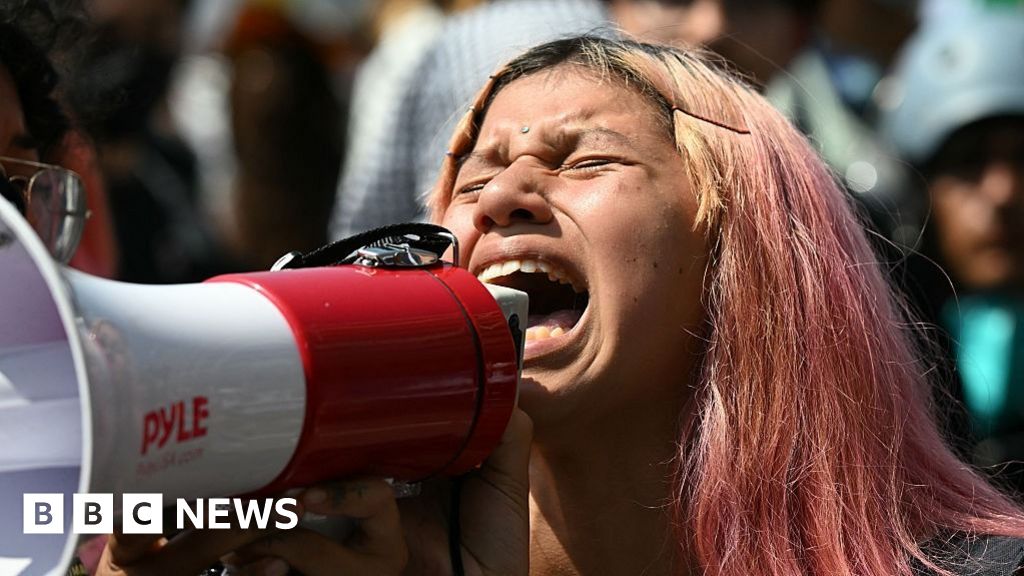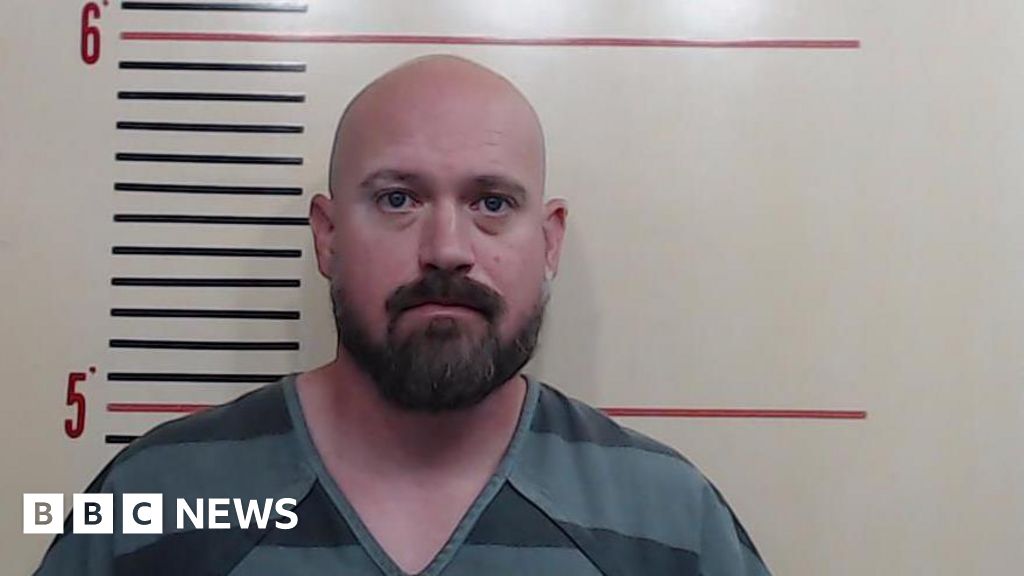ARTICLE AD BOX
 Image source, Boy_Anupong
Image source, Boy_Anupong
By Natalie Sherman
Business reporter, New York
Drowning in debt, more and more Americans are taking advantage of a Biden-era change that has made it easier to have student loans forgiven - if they're willing to apply for bankruptcy.
Elizabeth Hadzic, a divorced mum-of-three, has ideas about what she would do if she weren't facing a mountain of student debt: open her own therapy practice, return to her native Canada, work remotely and spend a month with her grandchild.
A change to the US bankruptcy process could make it all possible.
Last year, the US said it would make it easier for people to free themselves of student loans in bankruptcy, a prospect long considered hopeless.
It is a move with potentially vast implications in a country where more than 43 million people carry student debt, generating a total debt load of more than $1.7tn (£1.34tn), and borrowers often face heavy monthly bills decades after they have finished their education.
Bankruptcy, said Ms Hadzic, "opens up opportunity that I couldn't really see before."
This summer she asked the government to erase more than $100,000 in debt from student loans she took on to train as a therapist. She faces potential monthly bills of more than $1,400 - a sum she said she cannot afford alongside the rest of her expenses.
"I thought I'd be able to pay it off... but what I do for work just doesn't make that volume of money," said the 50-year-old, who worked for community health, prison and homeless programmes before switching to a private company in 2019 to try to earn more.
Image source, Elizabeth Hadzic
Image caption,Elizabeth Hadzic says what she earns as a therapist would never allow her to repay her loans
"In my mind, I kept thinking I'm going to pay this money back until I realized it just wasn't going to happen... I would be paying this the rest of my life."
For decades, student loans in the US have faced a higher bar for forgiveness than other debts, like credit-cards, with borrowers forced to prove "undue hardship" if forced to repay - a term that has led to contentious court battles.
The rules were created to prevent borrowers from taking on big loans with no intention of repaying - and limit the potentially huge cost to the federal government, which is the largest provider of student loans in the US.
But critics say it has led to a system that is unduly harsh, generating horror stories of the government fighting bankrupt single mothers and cancer patients for thousands of dollars in monthly debts they are unable to pay.
Unlike the UK and other parts of the world, monthly student loan payments often bear no relation to a borrower's income; nor do they come with an expiration date.
President Joe Biden, whose most ambitious debt forgiveness plan was blocked by the courts this year, backed changes to the bankruptcy system during his 2020 presidential campaign.
Image source, Getty Images
Image caption,President Joe Biden has seen his most ambitious debt forgiveness plan blocked by the court
Guidance from the Department of Justice announced last year instructed officials to avoid litigation and agree to discharge the loans if a borrower faces higher expenses than income; is unlikely to be able to pay the loan in the future; and has made an effort to pay.
An estimated 250,000 people with student loans file for bankruptcy in the US each year, and under the new guidelines, about 100,000 could be eligible for some student debt relief, according to estimates by Jason Iuliano, a law professor at the University of Utah.
But so far, only a small number - about 630 - have actually petitioned to discharge their student loans as part of their personal bankruptcy.
The Department of Justice would not say how many of those claims had been resolved, but said some relief had been granted in 99% of those that had. Advocates said that number stood at just a few dozen as of July.
With many lawyers still learning about the changes, John Rao, senior attorney at the National Consumer Law Center, said the programme needed more time to prove itself.
But even if the numbers remain small compared to the problem, he said the impact should not be underestimated.
"There are real stories and people behind those numbers," he said. "While it may only be a couple thousand who might use this, for them, it's changed their lives."
Kestrel O'Conally of Washington filed for relief this spring, hoping for a discharge of more than $600,000 in student debt, including nearly $175,000 in interest, racked up in pursuit of a doctorate in psychology.
With little other debt, the 41-year-old said she had never considered bankruptcy before a friend alerted her to a news article describing the changes.
Image source, Kestrel
Image caption,Kestrel O'Connally said for her bankruptcy was a no brainer
In her situation, as a renter with few assets, the consequences from bankruptcy, like having credit cards cancelled, seemed like small prices to pay, she said.
"It was a no brainer," she said. "I get my life back."
Those who have pursued relief via bankruptcy typically face months of wait. Aaron Ament, president of the National Student Legal Defense Network, warned those delays could worsen if the idea gains traction.
Petitions in the first 10 months since the change were already about 30% more than the average pre-pandemic year.
Those numbers are expected to accelerate, as borrowers have to resume student loan payments after a three-year pandemic-related pause ended in October.
"It's getting real now in terms of coming up with the money to pay the loans out of their existing budget," said Latife Neu, a student loan and bankruptcy lawyer in Washington state, who said she had seen a steady uptick in inquiries.
Ms Hadzic said her bankruptcy was not technically triggered by her student loans, but by thousands of dollars in credit card debt racked up when her youngest son landed in hospital and she had to take off work.
But her lawyer, Timothy Chambers, said without addressing the student loans as well, he feared she could land in a similar financial crisis.
"I'm hoping this will be able to give people like Elizabeth that absolute fresh start which bankruptcy is supposed to give," he said.

 1 year ago
38
1 year ago
38








 English (US) ·
English (US) ·